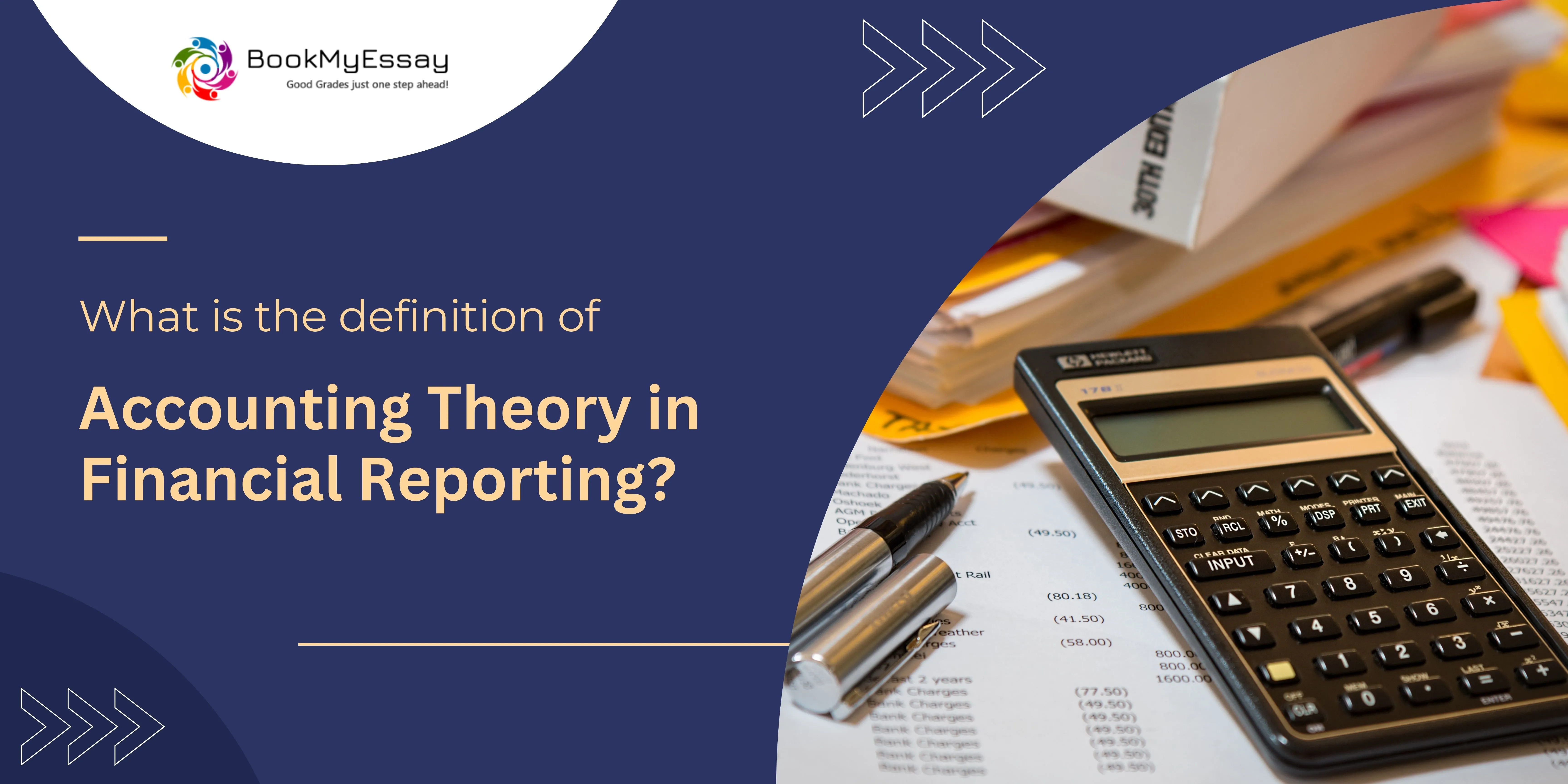Accounting theory in financial reporting is a critical aspect of understanding how financial information is prepared, presented, and interpreted within the realm of accounting. It forms the foundation upon which accounting standards and practices are developed and implemented. In this discussion, we'll delve into the definition of accounting theory in financial reporting, explore its key concepts and principles, and highlight the importance of understanding these theories in the context of Bookmyessay's Accounting Theory Assignment Help and Accounting Concepts.
Definition of Accounting Theory:
At its core, accounting theory can be defined as a set of principles and concepts that guide the preparation, presentation, and interpretation of financial information. It provides a framework for accounting professionals to record transactions, prepare financial statements, and communicate financial performance to stakeholders.
Key Concepts in Accounting Theory:
-
Entity Concept: This concept emphasizes that a business entity is distinct from its owners or other entities. It requires financial information to be recorded and reported from the perspective of the business as a separate economic unit.
-
Going Concern Concept: According to this concept, a business is assumed to continue operating indefinitely unless there is evidence to the contrary. This influences financial reporting by guiding how assets, liabilities, and financial performance are evaluated.
-
Historical Cost Concept: Financial transactions are recorded at their original cost, which is considered a reliable and verifiable basis for reporting. This concept ensures consistency and comparability in financial statements.
-
Conservatism Concept: This concept suggests that when faced with uncertainty, accountants should err on the side of caution. It leads to a conservative approach in recognizing revenues and assets while promptly recognizing liabilities and expenses.
-
Matching Principle: Expenses should be matched with the revenues they help generate within the same accounting period. This principle ensures that financial statements accurately reflect the results of operations for a specific period.
-
Materiality Concept: Financial information should focus on material items that are significant enough to influence the decisions of users. Immaterial items may be aggregated or omitted to avoid cluttering financial reports.
-
Consistency Principle: Accounting methods and practices should be consistent from one period to another, providing users with reliable information for comparison over time.
-
Full Disclosure Principle: All relevant information that could impact decision-making by users should be disclosed in financial statements or accompanying notes. This principle promotes transparency and completeness in reporting.
Importance of Understanding Accounting Theory in Financial Reporting:
-
Compliance: Knowledge of accounting theory helps ensure compliance with accounting standards and regulations. It enables professionals to apply the appropriate principles when preparing financial statements.
-
Decision-Making: Stakeholders, including investors, creditors, and management, rely on financial information to make informed decisions. Understanding accounting theory aids in interpreting financial data accurately and assessing a company's financial health.
-
Comparability: Consistent application of accounting theory facilitates comparability between different entities and over time. Users can analyze trends, benchmark performance, and evaluate financial ratios effectively.
-
Risk Management: Accounting theory guides risk assessment and mitigation strategies by providing insights into financial reporting practices. It helps identify potential areas of concern and ensures proper disclosure of risks in financial statements.
-
Investor Confidence: Transparent and reliable financial reporting, supported by sound accounting theory, enhances investor confidence. Investors are more likely to trust financial information when it adheres to established principles and standards.
Bookmyessay's Accounting Theory Assignment Help:
For students seeking assistance with accounting theory assignments, Bookmyessay offers specialized support tailored to the nuances of accounting concepts and principles. Their services cover a wide range of topics, including entity theory, revenue recognition, measurement bases, and conceptual frameworks.
By leveraging Bookmyessay's expertise, students can gain a deeper understanding of accounting theory and its practical applications in financial reporting. The assignment help provided includes explanations, examples, and case studies to reinforce key concepts and enhance learning outcomes.
Conclusion:
Accounting theory in financial reporting encompasses a range of concepts and principles that guide the preparation and interpretation of financial information. Understanding these theories is crucial for compliance, decision-making, comparability, risk management, and investor confidence. Bookmyessay's Accounting Theory Assignment Help offers valuable support to students navigating the complexities of accounting concepts, ensuring a solid grasp of theory and its practical implications in the world of finance.





 3 Bellbridge Dr, Hoppers Crossing, Melbourne VIC 3029
3 Bellbridge Dr, Hoppers Crossing, Melbourne VIC 3029




